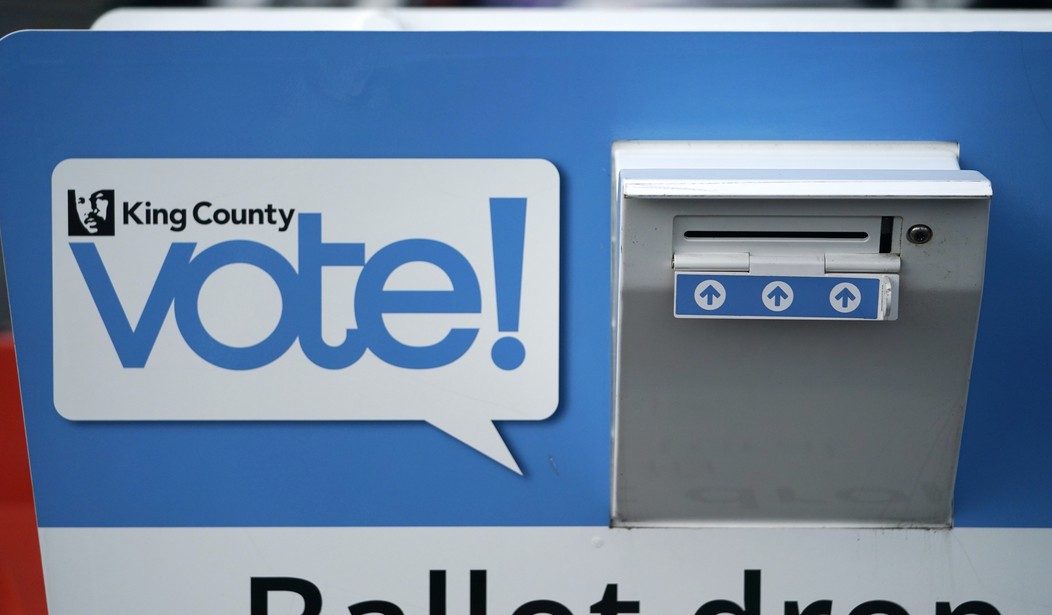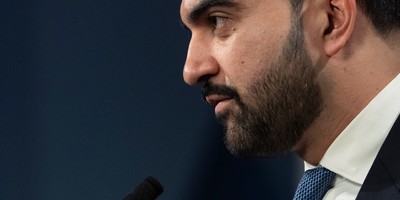We are just a year away from critical mid-term elections. Finding a path to ensuring election integrity is a must to build trust in any result. But, unfortunately, any attempt to do so risks headlines like the following: "A damaging blow to voting rights." "Restrictive voting laws new Jim Crow." "The Supreme Court Kills the Voting Rights Act." Such headlines dominate mainstream liberal coverage whenever voting is in any way restricted. In our crazy COVID world, Democrats seem comfortable with mail-in ballots flying everywhere forever, last-minute voter registration, extended early and late voting, and the elimination of voter ID.
It's clear that the last presidential election had problems. Changes were made to deal with COVID limits. As a result, more and more Americans now distrust our current election controls. Even with forensic audits in every state, what would happen if enough evidence surfaced to reverse the election? Would the President be replaced and all the laws passed be rescinded? That is unlikely. There seems to be no mechanism to right possible wrongs, but that makes putting our focus on ways to ensure a fair election that can be trusted more important than ever.
The courts have at times added to the confusion and also provided some clarity. Several of the 1965 Voting Rights Act's (VRA) enforcement mechanisms were struck down in 2013 after the high court ruled that circumstances had changed so dramatically in the 50-plus years since the bill's passage that these "extraordinary" mechanisms could no longer be justified. As a result, several states rushed to strengthen their own voting laws.
When the U.S. Supreme Court in a 6-3 ruling upheld the 2016 Arizona election reforms earlier this year, they supported the Republican backed measure that placed restrictions on third party collection of early ballots and on locations where absentee ballots may be cast. The Arizona law prevented people from turning in ballots on behalf of others, except in the case of care givers and family members. It also ensured that in-person votes must be cast in the precincts to which voters are assigned. As stated in the majority opinion, "Mere inconvenience cannot be enough to demonstrate a Constitutional violation."
Recommended
But the frenzy continues to bring more clarity and strength to our election laws. Republicans have resisted any attempts to federalize elections. On Oct. 20th, Republicans unanimously filibustered the Democrats' "Freedom to Vote" Act. That act would have created new requirements for groups to disclose information about their donors, named Election Day a national holiday, and created federal standards for voting by mail, early voting, and voter ID.
At the state level, Florida Gov. Ron DeSantis supported the critical election integrity legislation signed into law in May. That law strengthened voter identification requirements, prohibited the mass mailing of ballots, banned ballot harvesting, and barred private money from influencing elections in the Sunshine State. On Nov. 3rd, DeSantis asked Florida lawmakers to pass additional election integrity measures when they meet for the upcoming 2022 Legislative Session.
Other states would be wise to follow Florida's lead. The newly proposed legislation would create an Office of Election Crimes and Security solely dedicated to investigating allegations of violations of Florida's elections laws with adequate investigators to accomplish their mission. Another proposal would require timelines for county supervisors of elections to clean up voter rolls, removing voters who have died, moved, or become ineligible for some other reason. To deal with "haphazard and un-secure" dropbox locations, each location would have camera surveillance and a person supervising it. Dropboxes would be removed immediately and taken to a secure area immediately after voting ends.
Reforms in Georgia are part of the answer. New reforms require signature verification with the original registration file, a change which would have accounted for thousands of ballots being rejected in the last election. It would also have rejected ballots from voters who moved out or state, or to another Georgia home but never re-registered, or listed P.O. Boxes, government addressed or businesses as their residential address.
Let's be clear, requiring voter ID is not racist voter suppression. Some polls suggest that over 60 percent of black voters support it. Research shows that even strict ID laws have had no effect on turnout. Virtually every other country requires a government issued ID before one can vote in their respective elections. Why would the United States, the supposed bedrock of democracy, not require a photo ID?
Let's face it, if you are going to go anywhere, chances you will need to show your identification or even your proof of vaccinations. Liberals suggest such requirements discriminate against young, low income, disabled, Native Americans and other minorities, but all of these demographics are definitely going to need proper identification. If some do not currently have a photo ID, why not put the emphasis this year on helping every eligible voter get a valid photo ID well prior to our next election?
There are other restrictions that should be considered. The State of Georgia requires voters to be in line prior to the 7 PM closure of polls and restricts electioneering at polling places. Mail-in ballots ought to be required to be postmarked on or before the day of the election. Provisional votes should be validated in a reasonable time.
I believe most Americans on either side of our political divide want our elections to be fair. They want all eligible voters to have an opportunity to vote and want an accurate count of their votes. Progress has been made, but we have less than a year to ensure that we can once again trust the results in our national and state elections. May it be so.
Terry Paulson is a PhD psychologist, author, and professional speaker on Earned Optimism, Making Change Work, Claiming Your American Dream, and Becoming a Conservative Values Voter. For more information contact him at terry@terrypaulson.com.























Join the conversation as a VIP Member